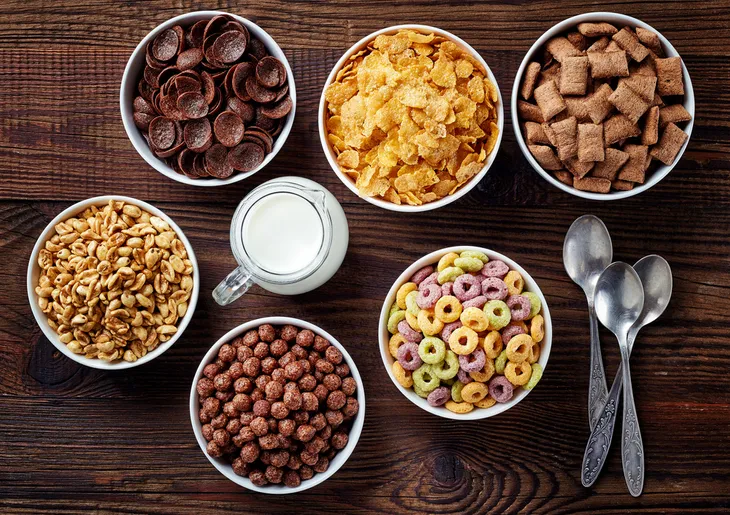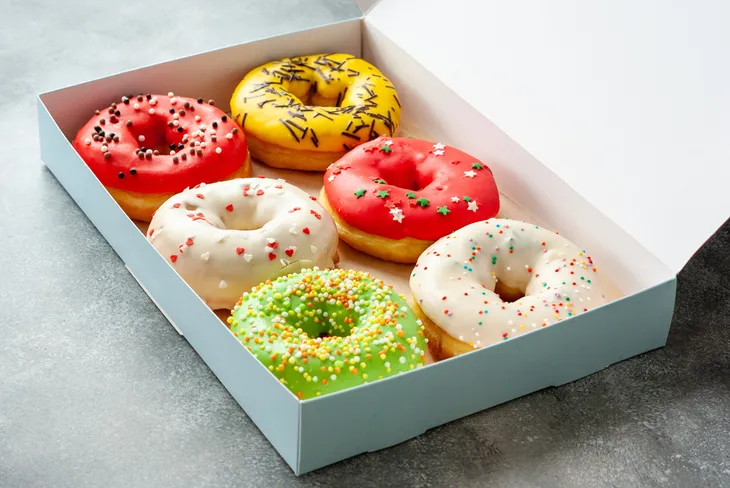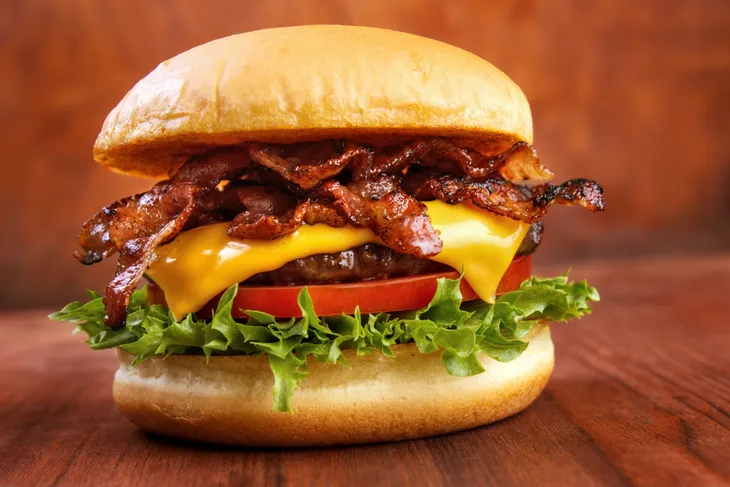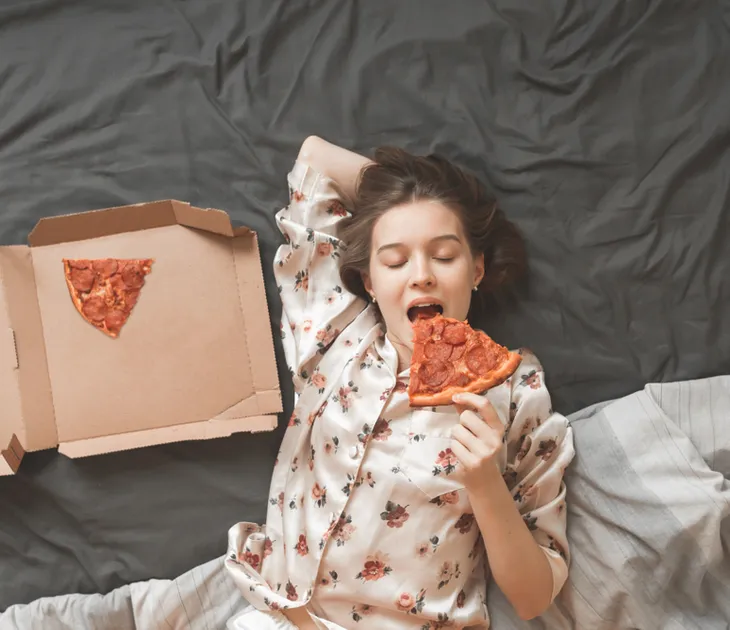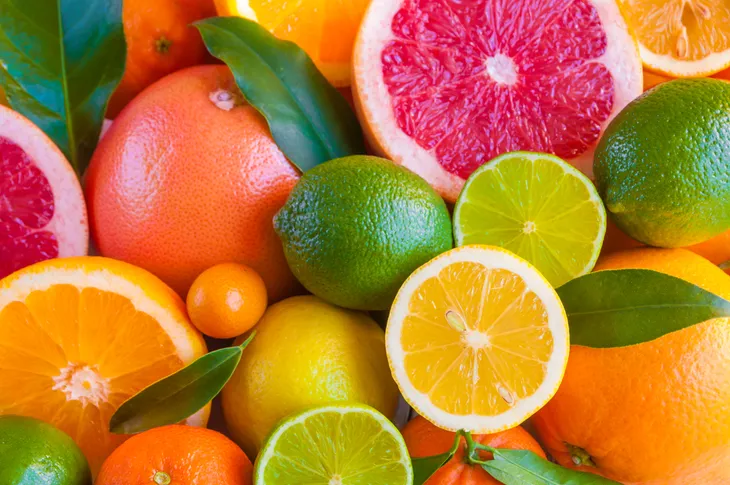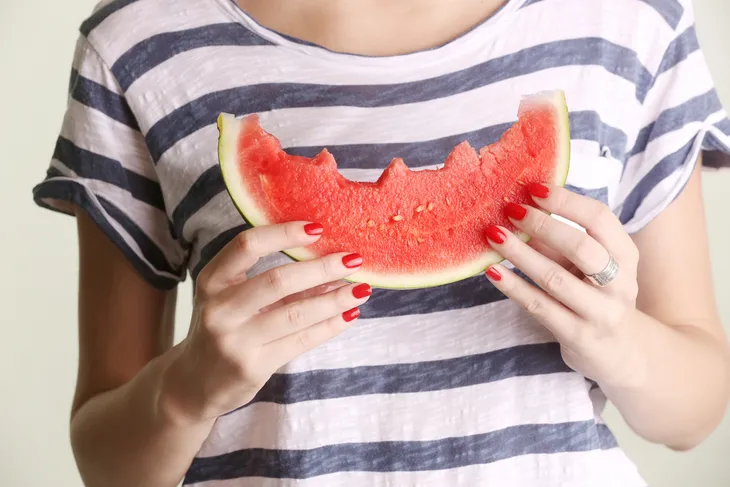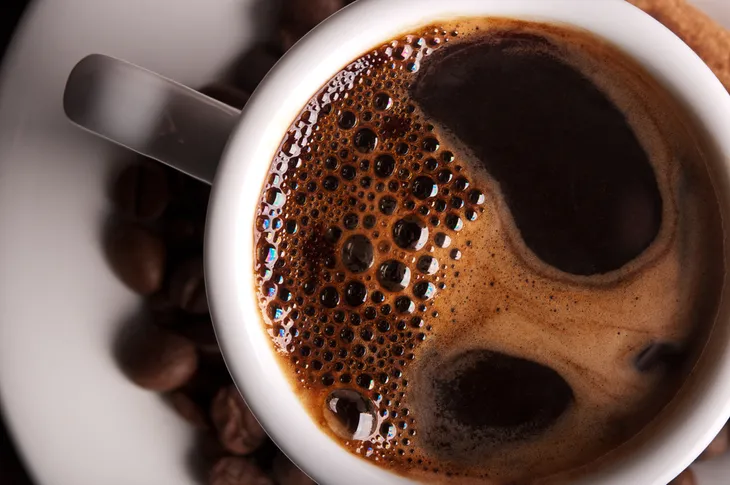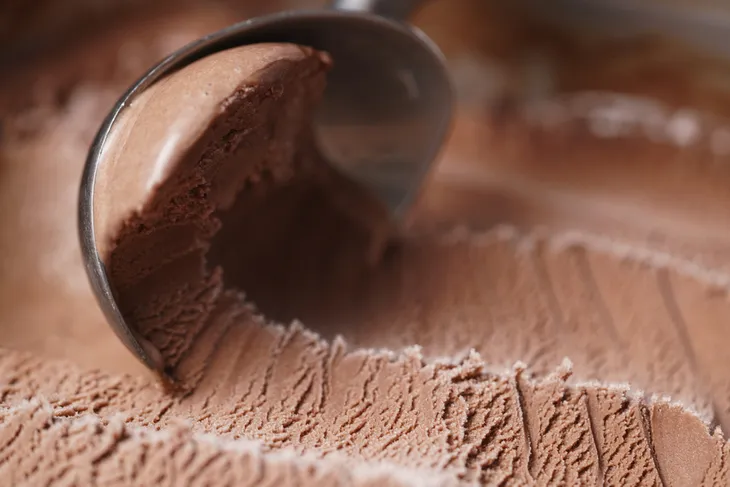- If you’re having difficulty sleeping, what you’re eating may be to blame.
- Some foods may be wreaking havoc on your sleep, causing indigestion, heartburn, and other uncomfortable symptoms that are keeping you up at night.
- Try avoiding these 11 foods to get a better night’s rest.
It’s no secret that sleep plays an integral role in your physical and mental health. But if you’re having difficulty falling asleep and staying asleep then your bedtime habits might be to blame, particularly what you’re eating. While you may be tempted to dig into that ooey-gooey brownie right before bed, you might want to think twice!
Some foods can help promote sleep while others can have the opposite effect, causing indigestion, heartburn, or simply keeping you awake. Some might even increase your risk of nightmares, causing restless sleep. If you want to get a good night’s rest, keep reading to find out which foods you shouldn’t eat before bed!
Spicy Foods
Are you tempted to dig into your spicy curry leftovers right before bed? You’ll want to rethink that choice. This is because eating spicy food before bed can lead to a range of discomforts and disruptions during sleep.
For starters, foods that contain chili peppers may cause stomach irritation and heartburn because they contain a compound called capsaicin. These symptoms can be particularly pronounced when lying down, as the acid in the stomach can travel up the esophagus more easily. Healthline also points out that eating spicy foods can temporarily raise your core and surface body temperature, which is linked to sleep disturbances. So, if you’re going to eat spicy food, it’s best to eat it earlier in the day when you have more time to digest it before sleep.
High-Sugar Cereal
Cereal is one of the easiest and quickest snacks to throw together and although delicious, it’s not the best bedtime snack. Not all cereals are bad but many are high in sugar and carbs, both of which can lead to a spike in blood sugar levels. In turn, you may have difficulty falling asleep and staying asleep throughout the night.
In addition to sleep disturbances, you may wake up a few hours later starving or be more hungry in the morning. This is caused by an overproduction of the hormone that regulates glucose in the body. If you’re really craving cereal at night, opt for a low-sugar and high-fiber cereal instead and consider pairing it with a source of protein to prevent a blood sugar spike.
Donuts and Other Pastries
It’s hard to resist delicious pastries like donuts and chocolate croissants but it may be best to avoid them right before bed. This is because they’re high in sugar, refined carbs, and unhealthy fats that can wreak havoc on your sleep.
Healthline points out that refined carbs are digested quickly and can cause major swings in blood sugar levels, which can contribute to overeating. This is because these types of foods promote “short-term fullness, lasting about one hour.” So you’ll likely be craving more shortly after eating. Furthermore, making a habit of eating foods like this over time may lead to weight gain and other health problems.
Fried Foods
Have a craving for a greasy cheeseburger or fries? We’ve all been there but before you make an order on UberEats, you’ll want to think again. It’s no secret that fried foods are bad for our health, and though they can be enjoyed in moderation, it’s best to avoid them before bedtime. This is because most fried foods are high in calories and unhealthy fats, which can lead to a range of disruptions and discomforts during sleep.
Firstly, fried foods may cause acid reflux or heartburn in some people and the symptoms may worsen when you lie down to sleep. The high-fat content in these foods can also slow down digestion, leading to discomfort and feelings of heaviness or bloating. Additionally, eating these high-calorie foods regularly can lead to weight gain, which can disrupt your sleep even further.
Pizza
Similarly to cheeseburgers and other fried foods, pizza is also not a great bedtime snack. Firstly, Kristen Smith, M.S., RDN, a spokesperson for the Academy of Nutrition and Dietetics tells Eat This, Not That, the acidic sauce and high-fat cheese on pizza may cause a stomachache. But that’s not all.
Pizza may cause acid reflux symptoms in some people, which can be exacerbated when you lie down to sleep. Smith also notes that traditional pizza toppings (like processed meats, more cheese, and additional sauces) add even more fat and calories, which may contribute to weight gain if eaten in excess. And finally, pizza crust is high in refined carbs, which can disrupt healthy blood sugar metabolism.
Citrus Fruits
Citrus fruits like oranges and grapefruits are certainly healthy snacks but it’s best to save them for earlier in the day. Headspace explains that these types of fruits can be tough on the digestive system and trigger indigestion that disrupts your sleep.
Additionally, citrus fruits can trigger heartburn in some people because they’re acidic. Lemons can also act as a diuretic and may stimulate the bladder, leading to frequent urination during the night. This can also disrupt your natural sleep cycle. Overall, it’s best to avoid citrus fruits before bed if you are sensitive to acidity or suffer from heartburn or acid reflux.
Foods With High Water Content
Foods such as watermelon, cucumber, celery, lettuce, and tomatoes are certainly healthy but consuming them in excess right before bed may wreak havoc on your sleep. This is because these fruits and veggies are high in water, which may lead to frequent trips to the bathroom throughout the night.
Foods high in water content may also have a laxative effect if consumed in large amounts, which can lead to digestive discomfort or diarrhea. It’s still important to maintain hydration throughout the day, but it’s best to avoid consuming large amounts of water-rich foods before bed.
Big Meals
While you don’t have to ignore your hunger signals before bed, it’s best to avoid big meals. Eating a large meal before bed can disrupt your sleep in a number of ways. For starters, it can slow down digestion, which may lead to discomfort or indigestion during sleep.
Depending on which foods you overindulge in, your blood sugar may spike and then crash, which we already know can lead to a disrupted sleep cycle. Additionally, eating too much can also increase the risk of heartburn or acid reflux, further disrupting sleep. Overall, it’s best to avoid big meals before bed and opt for lighter, healthier options that are easier to digest.
Caffeinated and Carbonated Beverages
Coffee, energy drinks, sodas, and other caffeinated drinks should be avoided at all costs before bed as they can negatively impact your sleep quality and overall health. For starters, caffeine is a stimulant that can increase alertness and make it difficult to fall asleep. Consuming caffeinated beverages such as coffee, tea, or energy drinks close to bedtime can disrupt the natural sleep cycle and lead to poor sleep quality overall. In fact, the Sleep Foundation recommends cutting off caffeine a minimum of 8-hours before bedtime.
Carbonated beverages, whether they contain caffeine or not should also be avoided. Many carbonated drinks also contain high amounts of sugar, which we already know can disrupt your sleep. But that’s not the only reason. Carbonated beverages can increase the risk of heartburn symptoms in some people too. They may also cause discomfort or bloating in the stomach for some. If you’re feeling thirsty before bed, it’s best to stick to water and save the other drinks for earlier in the day.
Watch Out for Foods With Hidden Caffeine
Caffeine can also be found in many different foods and beverages, including some that may be surprising. Here are a few examples of foods that have hidden caffeine:
- Chocolate: Chocolate contains small amounts of caffeine, with dark chocolate having more than milk chocolate. A 1-ounce serving of dark chocolate can contain up to 23-milligrams of caffeine.
- Ice cream: Some brands of ice cream, particularly those with coffee or chocolate flavors, may contain caffeine. A 4-ounce serving (or one scoop) may contain anywhere from 5- to 125-milligrams of caffeine.
- Energy bars: Some protein bars contain caffeine as an ingredient to help provide a boost of energy. The amount of caffeine can vary widely depending on the brand and flavor.
- Medications: Some over-the-counter pain relievers and cold medicines contain caffeine as an ingredient. Always check the label of any medication you are taking to ensure that you are aware of any caffeine content.
- Flavored water: Some brands of flavored water, particularly those marketed as energy drinks, may contain caffeine.
It’s important to be aware of the caffeine content of foods and beverages, especially before bedtime. So, always be sure to read the ingredients to avoid consuming too much caffeine before bed.
Alcohol
Consuming alcohol before bed can have negative effects on both the quantity and quality of your sleep. While alcohol may initially help you fall asleep faster, it can disrupt the natural sleep cycle and lead to poor sleep quality overall.
For starters, alcohol can disrupt the rapid eye movement (REM) stage of sleep, which is the stage of sleep associated with dreaming and essential for memory consolidation and learning. Disrupted REM sleep can lead to a feeling of grogginess and difficulty concentrating the following day.
Drinking alcohol before bed may also increase snoring and sleep apnea. This is because alcohol can cause the muscles in the throat to relax. This can disrupt sleep and lead to feeling tired and irritable the following day.
Healthy Foods to Eat Before Bed
While you may feel restricted after reading this list of foods you shouldn’t eat before bed, know you have plenty of great options to choose from. The best and healthiest bedtime snacks are those that are easy to digest, low in calories, and nutrient-dense. Remember to keep your bedtime snack small and avoid heavy or high-fat foods that may disrupt digestion or cause discomfort during sleep. To help, here are a few bedtime snack ideas to eat instead:
- Greek yogurt: Greek yogurt is a great source of protein and calcium, which can promote muscle repair and relaxation. Add a small serving of berries for added flavor and antioxidants.
- Almonds: Almonds are a good source of healthy fats, protein, and fiber, and can help promote feelings of fullness and satiety. A small handful of almonds is a great bedtime snack.
- Whole-grain cereal: A small serving of whole-grain cereal with low-fat milk can provide a good source of fiber, protein, and carbohydrates, which can promote feelings of fullness and relaxation.


